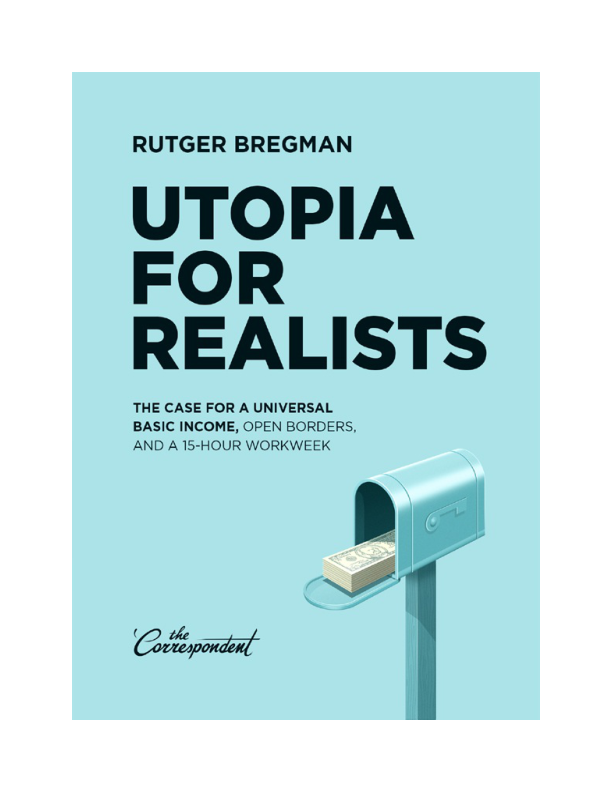The author of Utopia for Realists is Rutger Bregman. Bregman is Dutch and is considered one of Europe’s best young thinkers. In Utopia for Realists, Bregman draws liberally from history. Reading his book, even the history buff will likely learn new and often fascinating facts. His analysis of history is generally European left-of-center, but he has some fresh ideas that do not necessarily fit into the traditional left/right spectrum. For instance, he is correct when he questions that GDP is not as good a measure as most economists consider. (In this reviewer’s words, if country A’s GDP is 1 billion, but it spends 20% of its GDP on police, prisons, drug treatment programs, etc. but country B has a GDP of only 800 million, but spends only 1 % of its GDP on such programs. Country B is certainly “richer” in practical terms).
Three of the many themes in Utopia for Realists are: First, is that a true utopia would be boring, think Captain Kirk in Star Trek Generations caught in the Nexus to understand what Bregman means. The second is the significance of leisure time. There are two types of leisure: leisure enjoyed by the wealthy, meaning those who do not have to toil at jobs and enforced leisure for those displaced from work due to economic factors and/or automation. Bregman tends to blur the two. The third, and is obviously very close to Bregman’s heart is the notion of guaranteed minimum income. Bregman provides some data to support his view but seems woefully ignorant of how pervasive the drug problem is in the United States. If say welfare grants were raised by five hundred dollars it is true that most poor would use the money productive (new clothing for their children, a movie or dinner out, which promotes family togetherness as well as pumps the money back into the economy) but many would use that money for illicit drugs, especially opioids. We already have too many overdoses and drug-related deaths or near deaths. Under a guaranteed income program, the cost of illicit drug use would likely outweigh any benefits. Moreover, the drug overdose rate would rise, surely Bregman doesn’t want that on his conscience.
So while Bregman provides some interesting historical background and some fresh ideas, on the whole, his book merits just three stars.
 کتاب سل Ketab Sell | کتاب سل، بزرگترین منبع کتاب و جزوههای دانشجویی
کتاب سل Ketab Sell | کتاب سل، بزرگترین منبع کتاب و جزوههای دانشجویی









Reviews
There are no reviews yet.